Which automaker teased the 800-volt future of its EVs sized like Model 3 and Model Y?
Which automaker is using a biogas-fed hydrogen fuel-cell plant to power its largest U.S. port?
This is our look back at the Week In Reverse—right here at Green Car Reports—for the week ending September 8, 2023.
The Polestar 2 is entering its fourth model year, and while it doesn’t look all that much different, much has changed about the way it drives—with a switch from a front-wheel-drive bias to a rear-wheel-drive one. A first drive of the 2024 Polestar 2 on some Colorado mountain roads was enough to show that this Euro-flavored performance EV might be worth another look in its simplest, most charming form—where it now also gets an EPA-rated 320 miles of range.
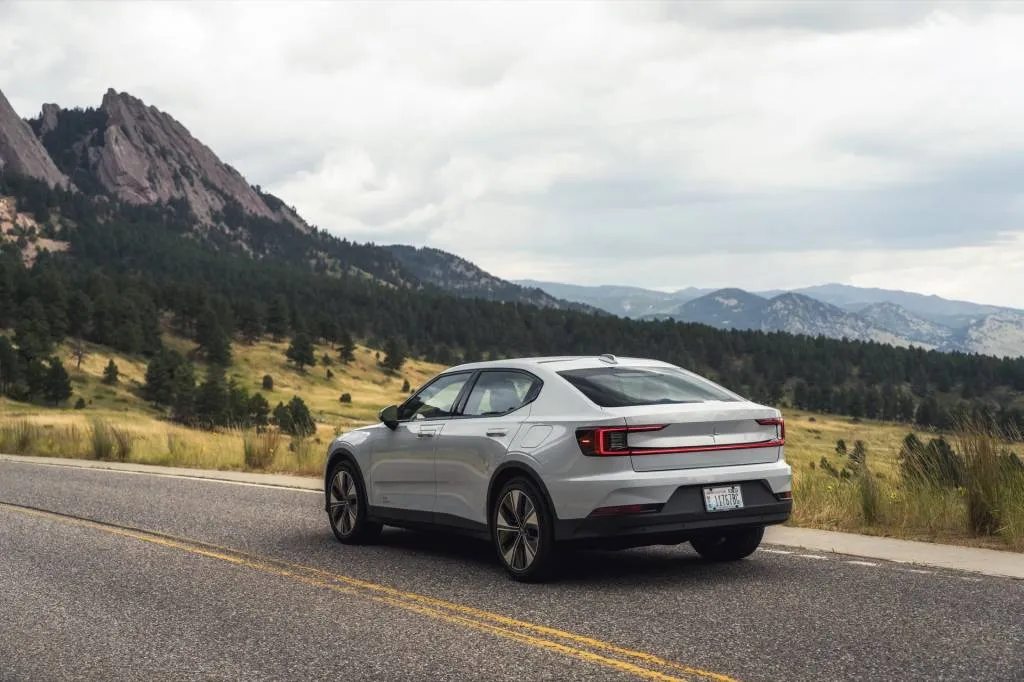
2024 Polestar 2 single motor
The 2024 Volkswagen ID.4 is getting a boost in power and acceleration versus 2023, VW revealed Monday. That improvement, thanks to a new rear power unit in models with the larger 82-kwh battery pack, will also likely bring improved driving range, although EPA ratings haven’t yet been released.
The 2024 Ford Mustang Mach-E Rally unveiled on Thursday presents a new twist on performance-oriented electric crossovers, focusing on dirt roads and looking back to Ford’s rich rally-car history. With a special RallySport drive mode, a lifted suspension, and the high-performance GT model’s dual-motor all-wheel drive retuned, it’s a formula not yet represented in EVs.
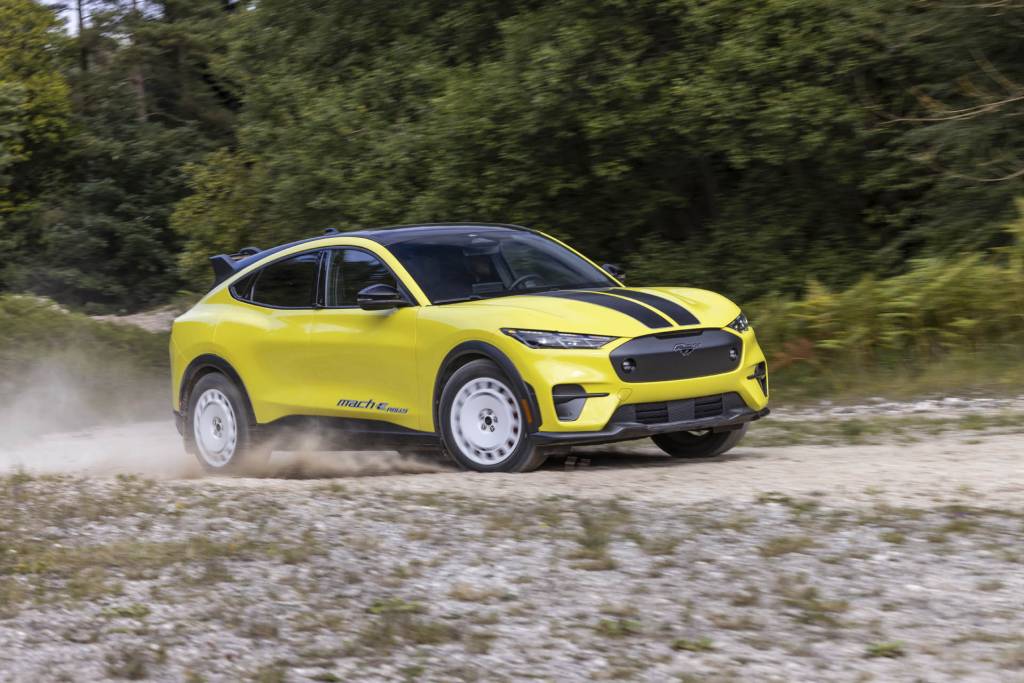
2024 Ford Mustang Mach-E Rally
Despite their excellent mpg, range, and efficiency numbers, the 2023 Toyota Prius and Prius Prime plug-in hybrid are among the vehicles landing a spot on the IIHS Top Safety Pick+ list. It should be noted these revamped models are more thrilling to drive and look at, too.
Ford is soon adding Apple Maps EV routing to the F-150 Lightning electric truck. As in the Mustang Mach-E, using Maps with CarPlay in the Lightning will be able to access the car’s state of charge, planning charging stops along the way when needed.
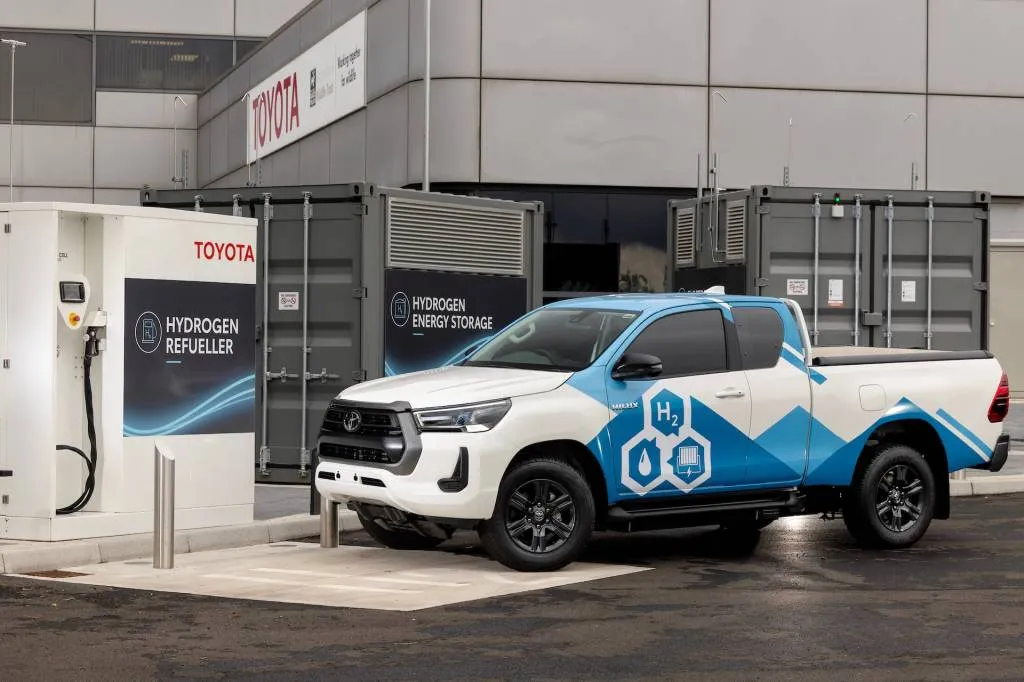
Toyota Hilux hydrogen fuel-cell prototype
Toyota revealed a hydrogen fuel-cell electric pickup truck—in the U.K., and based on that market’s closest equivalent to the Tacoma, a Hilux. So far it’s just a prototype project, funded partly with government money, but such a truck could be introduced later in the decade, Toyota says.
Honda has set the timeline for adopting Tesla NACS charging. And what that means, it seems, is that dealerships will need to help support the CCS standard in the first EVs arriving next year, while those coming a year later in 2025 will have the different NACS charge port.
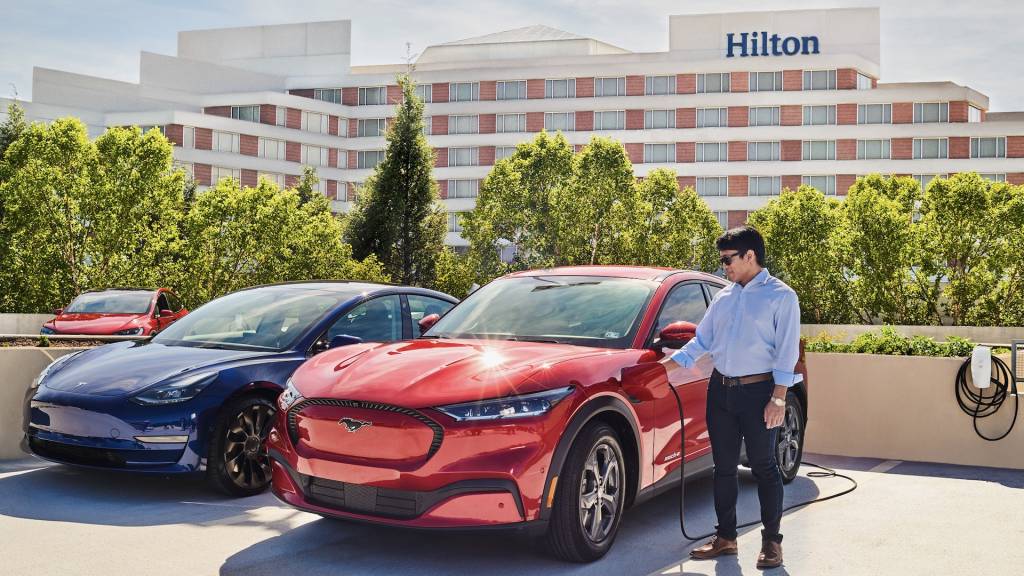
Hilton hotels add Tesla charging
Hilton has made a big commitment to providing hotel guests the means to fully charge many EVs overnight. It plans to install up to 20,000 Tesla Universal Wall Connectors, providing L2 charging up to 11.5 kw, at 2,000 hotels in the U.S., Canada, and Mexico. Tesla’s unit can charge both the brand’s own models with the NACS port and all other modern EVs with the J1772 port.
Toyota is producing its own fuel-cell power for its huge Long Beach port with a distributed hydrogen system that’s quite the comprehensive solution for cutting its emissions and energy use. Starting with agricultural methane piped in, the system not only cuts its reliance on grid power but can feed excess power to the grid, generate hydrogen for port semis and new Mirai fuel-cell cars arriving at port, and generate water for washing cars.
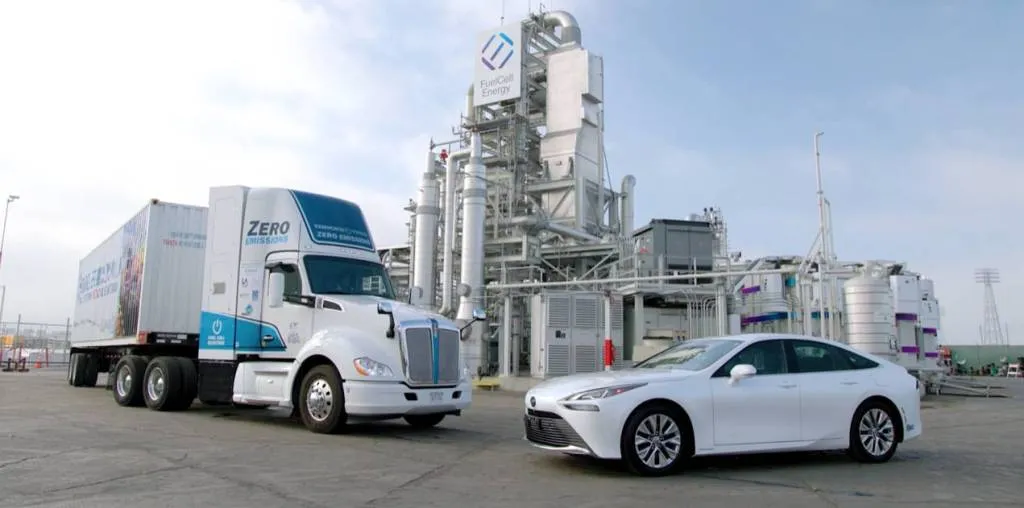
Toyota Mirai and fuel-cell semi, with FuelCell Energy at Long Beach
In a study out this week, J.D. Power found that EV adoption is becoming more polarized by state, with EVs becoming far more popular in states that have supported them with policies and incentives. Based on this trend, EVs will still surprisingly be the minority in states like North Dakota by 2035, it anticipates.
And finally, over the Labor Day holiday weekend, as American turned away from screen time to beach time and barbecues—heat waves permitting—the German auto industry opted to introduce many important EV concepts with global reach, at the Munich auto show. Several of these dig deep in respective brands’ design heritage, rather than attempting to remake all the design cues as part of it.
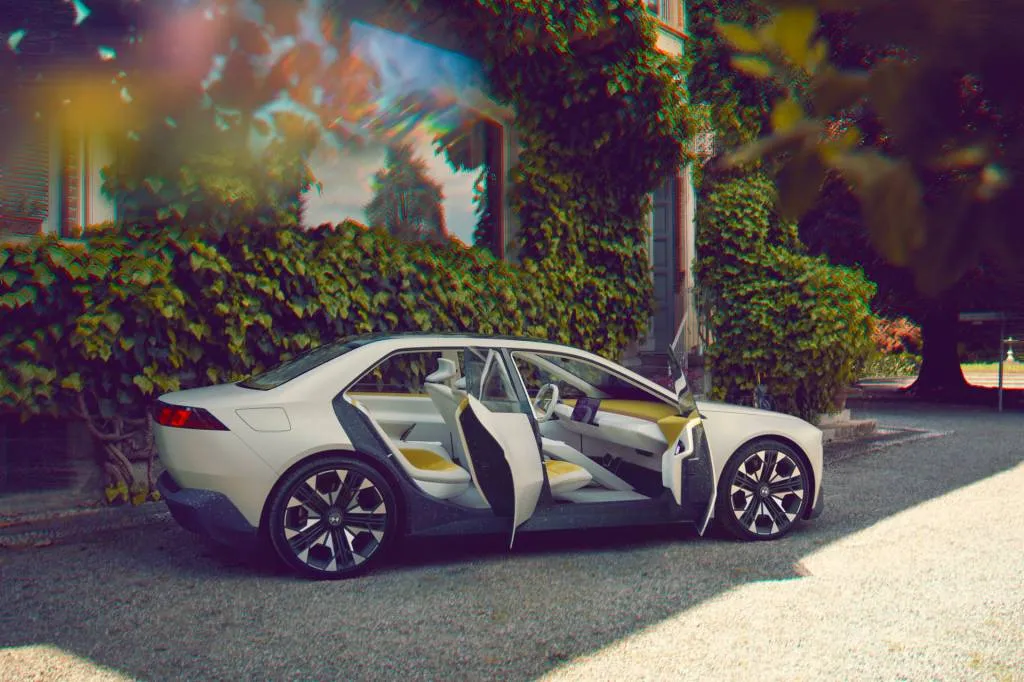
BMW Vision Neue Klasse
Among them: The BMW Vision Neue Klasse offers up a design that’s simultaneously a throwback to the E30 3-Series with a much-simplified interface, plus next-generation EV tech that promises more range, faster charging, and more efficiency.
The Volkswagen ID.GTI Concept EV offers up how VW plans to re-up its fun-to-drive compact car for the electric era.
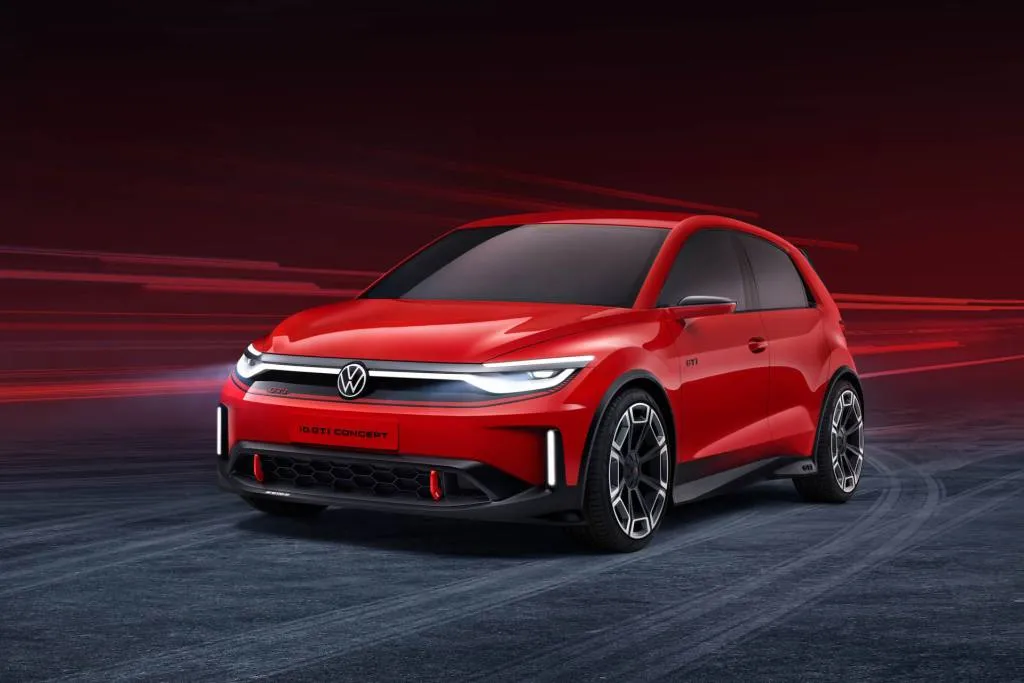
Volkswagen ID.GTI Concept
BMW’s Mini showed the first of a future lineup of EVs taking form. Its upcoming Mini Cooper and Countryman electric models, badged E or SE, will get a lot more range than the present-day Mini Cooper SE, as well as a simplified interface focused around a round central display screen.
Rounding out the concepts making a debut at last weekend’s Munich auto show, Mercedes’ Concept CLA-Class EV concept touted the brand’s efficiency focus for its upcoming compact EVs, which will be built around an 800-volt drive system.
The Audi Q6 E-Tron electric crossover will offer faster charging and a platform designed around efficiency. But it also marks the debut of a new interior design theme, Audi outlined at the show, as well as a new interface and user experience—including the introduction of a lightbar running the base of the windshield that can signal information like charging status. A passenger-side screen will also allow video viewing with a “digital blind” so the driver doesn’t get distracted.
_______________________________________

